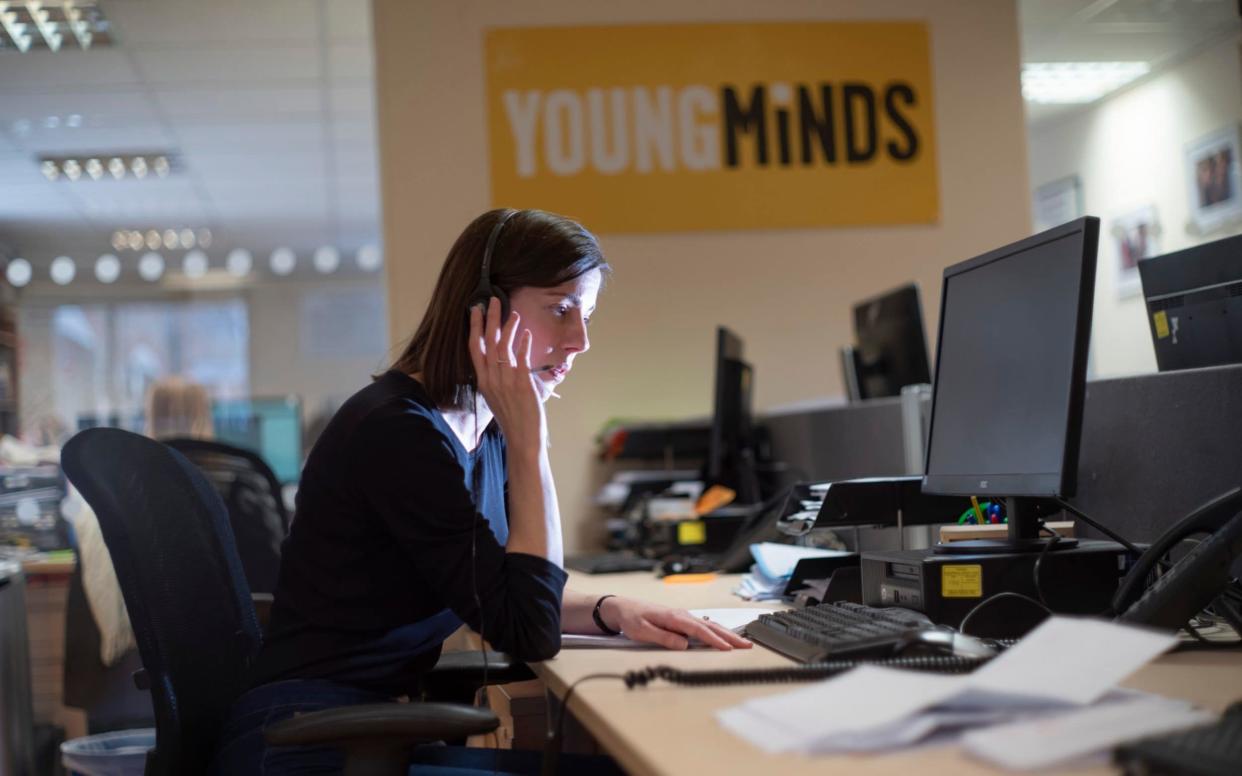If a child is in the grip of a mental health crisis, who is there for the parents?

One of the most useful bits of life advice is given out almost every minute of every day on airplanes, as pilots prepare to take off: in the unlikely event of an emergency, always remember to put on your oxygen mask first before trying to help someone else with theirs.
Of course, I never pay much attention to the safety announcements when I am strapped into a metal tube waiting to be launched into the sky, being of the opinion that, in the likely event of an emergency at 35,000ft, there is probably very little an oxygen mask will do to rectify the situation. But when not on a plane, it is a piece of guidance I find extremely useful, especially when responding to emails from desperate parents and grandparents, getting in touch to share their experiences of dealing with child mental health.
Every week, I get dozens of messages from adults who are struggling to deal with the stuff going on in the heads of their children or grandchildren. It says something about the sorry state of mental health provision in this country that I receive quite so many: these parents are normally finding it hard to communicate not just with their kids, but also the services who are supposed to be helping them.
It is not unusual to hear of waiting lists so long that a child will probably legally be deemed an adult by the time they get to the front; nor is it unusual to detect disturbances in the mental health of the parents, too. You are only ever as happy as your unhappiest child, as the saying goes.
This is why organisations like Young Minds, one of the Telegraph’s Christmas charities this year, are so vital. They step in and do the work that the health service should be doing; they pick up the many pieces left by chronic Government underfunding. Last week, representatives of the charity took a petition to Downing Street, which called for a new approach to dealing with child mental health: one where the so-called solution to the problem doesn’t end up actually making it worse (a survey carried out by Young Minds found that 76 per cent of parents said their children’s mental health had deteriorated while waiting for support from Child and Adolescent Mental Health Services, while two-thirds said that neither they nor their children had been signposted to any other form of support during the time they were waiting for support from CAMHS.)
But even change implemented now by the Government will take many years to trickle down, years that are unfathomable to anyone who is trying to help a child who is seriously ill right at this very moment.
And this is where the oxygen mask analogy comes in. Because I remember, as a seriously ill teenager, making my mother seriously ill, too, with worry and anxiety. So that my illness felt like much more than just an illness - it felt like a burden on everyone else, as if I was purposely setting out to ruin the lives of the people I lived with.
That wasn’t the intention, of course (there was no intention, just quiet desperation), but mentally ill people can seem selfish and inconsiderate, especially when so little is really understood about the conditions they suffer from. It doesn’t take long for the whole family to be at breaking point.
I wish that there had been something like Young Minds when I was a child - not so much for me, but for my mum. A phone number she could call for advice, or a website where she could hear from other parents about how they coped. I wish she had been able to put on her own oxygen mask before she frantically found herself trying to attach mine to my face, both of us gasping for air as she went about it, my sister and brother struggling to breathe, too.
Mental illness sucks the air out of families; people say it isn’t catching but I’m not so sure that’s true. It is desperate to isolate its victim, and it will cut off anything that tries to stand in its way.
So when I get messages from mums, dads and grandparents, frantic with worry about what to do with young family members, my advice is almost always this: breathe. Take a moment. Find someone in your phone book who you can call, and cry on them if need be. And remember this: you cannot improve a child’s mental health if you are in a state of suffering, too. It is not selfish to look after yourself. Like putting that oxygen mask on first in the event of an emergency, it is simply common sense.
Bryony Gordon will be taking part in the Telegraph's Christmas charity phone in on Sunday 2nd December. Call 0800 117 118 between 10am-6pm to donate

